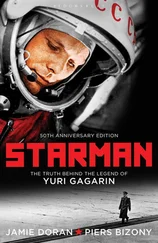Chief Bethel tightened the thin line of his lips. I could see he wanted to cause issue in some fashion by yelling, sending me away, or locking me up. Marvel of marvels, he turned on his heel. He gave a sharp hand motion. “Follow me.”
Flanked by and trailing the entourage of armed individuals, I obeyed. For fifteen minutes, we crossed through numerous bland corridors. The acting Governor and Security Chief moved in silence, irritation fixed upon his features.
We stopped moving in a long hallway lined with heavy-security doors. Bethel turned to me. “Your assessment, though arrogant and flippant, was correct.” He raised his chin. “If it were up to me, I’d have you and your ship harvested for useable parts before discarding the rest. We take care of our own here, and only one person has received the freedom to come and go as he pleases.”
I had an inkling toward who it might have been, but I sensed my new friend would be upset if I interrupted him. His self-important air annoyed me, but I didn’t feel like having him shout at me for several minutes before the conversation progressed.
Seeing no reaction from me, Bethel continued. “However, others are hoping, foolishly in my opinion, that you will not bring death from the galaxy upon us. They believe you should be happy, merry, cheerful, and able to gallivant about without a care as to how it may affect our way of life.”
He grit his teeth. “What we arrived at was a fair compromise. You are about to embark upon a mandatory tour of this facility, our prison-turned-home. They are hoping you will gather an appreciation for it. A sympathy. I have my doubts, but I also retain no ability to prevent your stay and meeting with our important individual.”
“However,” Bethel held up a finger. “If you should give me the slightest reason to mistrust or dislike you, I can make absolutely certain that all conversation takes place under the least comfortable circumstances. Do you understand me?”
If only for the sake of expedience, I nodded.
Bethel made a hand motion, and all of the soldiers save his pair of guards departed. He turned to me. “You may consider our current way of life to be one of misery and lack of civilization, but I assure you: it is infinitely better than the degradation and horror of our lives as forced laborers.”
“You have my greatest sympathy,” I replied. With a wary eye, he searched my expression for any sign of sarcasm or irony, but he discovered none. I didn’t gush, but there was at least a little sincerity behind my statement.
The security chief continued. “Where you are standing right now is one of the many prison wards.” He opened one of the doors and gestured. “Laborers in training are kept here, isolated.”
The room appeared cramped. A tiny bed, toilet, and sink were in close proximity, and empty floor space was close to nonexistent. A flickering recessed light provided a source of variability, entertainment, or more likely madness. “Countless hours are spent in silence and solitude. Simple meals and constant punishments are found during the period of training.”
Without waiting for me to respond, he moved on. Through dozens more hallways very similar, I gathered the facility housed a very large number. Considering the size of the asteroid, the number could have ranged into the tens of thousands, depending upon how much interior was taken up.
He stopped in a different corridor. The doors were the same security style, but they were further apart, each room at least three times as large. “This is a training ward. Every room,” he palmed the door, “contains equipment to precisely condition a subject to perform specific menial tasks at peak efficiency.”
Inside lay what appeared to be fragile materials and common household items. Cleaning implements were stacked on a shelf, and cameras and monitoring equipment were embedded in the walls. “For cleaners: dust particles, amount of pressure utilized upon various fragile and non-fragile items, amount of cleaning product expended, and numerous other facets are recorded. Requirements of each and being as close to perfection as possible is hammered into every fiber of their being. Each day brings different items and review. Improvement is expected. If there is no improvement, punishment is exacted.”
He palmed open another door. “Miners are directed to put forth the exact amount of physical requirement prior to exhaustion and injury. Strike pressure and angles are very important to perfect.” A faux rock wall lay with varied mining equipment.
Bethel made a sweeping gesture. “There are twenty-six different types of training rooms, and a full forced-labor staff is kept on site to maintain and prepare them for every session. Each individual in training remains for an average of one month at ten hours a day. Increasing punishment is exacted upon those who cannot perform adequately or learn too slowly.”
I sensed punishment had been a common factor in the existence of the slaves here. I also sensed he was building up to what the punishment actually was. I found his continued description of the facility as if it were still in use odd, but I didn’t comment.
Again we progressed. After five minutes of bland hallways, we stopped. The corridor held rooms appearing very similar to the training spaces. “Exercise rooms; self explanatory. Mandatory physical conditioning based upon age and future task. Inadequate performance leads to punishment.”
We stopped in another room. “Mess hall,” he informed me. It was more of a hallway than a hall. Several stalls lay on one side, appearing to have slots but no windows. “Ten minutes, four times daily,” Bethel said. “A prisoner walks to one of the stations, and handprint identification issues a personalized meal from each slot. The food and any vitamin or drug supplements are to be eaten to entirety within the amount of time or…” He stared at me with a stern gaze.
“Punishment,” I offered.
The acting governor nodded and moved on. The next area was larger, featuring rooms with several long tables. Countertops and cupboards surrounded the space. Medical implements lay about, and Bethel didn’t need to tell me what occurred in this place.
“Medical facility. All new trainees are given a complete physical examination to determine capabilities and needs. There is a minimum level required, and those not capable of any labor tasks are not punished.” He paused. “Elderly and ill are those generally considered incapable. Children are kept because they are the most easily trained and can grow into tasks. Those who cannot, simply by virtue of condition, are disposed of.”
He led me to a few other locations, but my mind began to wander as the repetition of poorly treated human beings dulled my sympathies. Indeed, I had seldom seen things more terrible, and this place bordered on the level of atrocity. Even with the lingering strain of odd emotional-levels, the intensity of the colony’s wrong diminished with each moment I spent on the tour.
Assisting this was my own purpose in being there. Finding this efficient machine, a facility for producing some of the finest in forced labor no matter how horrid the process, was not why I came. We passed through several more areas: showers and recreation, classrooms for laborers which required more than simple hands-on training.
Another corridor held booths filled with scanning equipment. The individuals would be placed within, and all manner of measurements would be taken. “Forced labor is a client-centered business,” Bethel said. “These provide specifications of every tiny detail for the use of selling.”
He continued, “Most often, we are sold in lots ranging from ten to a hundred. Sometimes more, many more. We are utilized by black market mining operations: those free of government influence and regulation. Some are used in widespread agriculture projects, and others are bought by private citizens. Some remain here to tend the facility.”
Читать дальше












